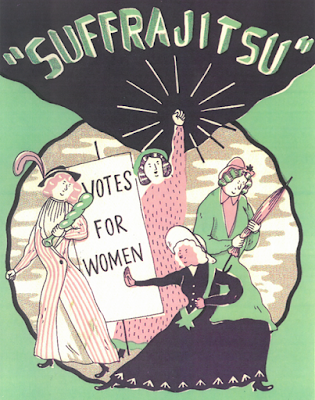This interview was first published in fRoots magazine No. 418. Spring 2018.
Cath and Phil Tyler are hardly what one might call prolific recording artists but, by jove, their stuff is worth waiting for. They first ploughed their particular Anglo-American neo-traditionalist furrow with 2008’s Dumb Supper and followed it up with the following year’s The Hind Wheels of Bad Luck. A sustained period of radio silence was broken by the six-track EP The Song Crowned King in 2015. Three years on, they’ve finally rewarded the patience of the faithful with their third full-length album The Ox and the Ax, released on LP by Thread Recordings and CD via their own Ferric Mordant Records imprint. I met up with the Tylers at Phil’s parent’s home in Devon before they played a mesmerising joint show with the utterly splendid Diamond Family Archive in Totnes.
“Lee Jones (Thread Recordings) is a friend of ours who’s really keen on vinyl releases” Phil begins. “He’s also doing the promotional work, so we just do the CDs and the music. It’s all working OK so far. The album title is just just a phrase that came up in a conversation that I made a note of. I keep a collection of things like tune names and made-up band names that I might want to use at some point. It doesn’t have any specific relevance to this album…” “but it sounds good!” concludes Cath. It looks good too. “David Hand (of Lancashire & Somerset Records) did the artwork for The Ox & The Ax” continues Cath. “and it’s just beautiful. It’s really simple screen-printing but it’s come out stunning.”
In my review of the album (fR417) I burbled-on about how seamlessly Phil’s newly-composed tunes cling perfectly to the texts of ancient songs and ballads, so I seized the opportunity to quiz the man about his process.
“Oh, that isn’t a plan,” he states, with disarming candour. “Nothing’s planned! I make up tunes and we’re not lyricists, so what do you do with your tunes? An easy solution is to just find an old text that matches it, and there you go. If we could write words, we’d have loads of original songs! I don’t have a writing partner to be the Lennon and McCartney of the fake traditional world with, so this is how it comes out. For instance, I had the tune that we use for Song Of The Lower Classes, and the version on Tim Dalling’s album reminded me of the text. It used to be that I always came up with a tune and then found words which would fit it, rather than writing tunes for specific texts - but it can come either way, now. Sometimes a tune will just come out through a particular guitar or banjo tuning…”
“It’s not quite just whether the words are going to fit,” Cath qualifies, “because the way we modify words into a tune is, quite often, very particular. Syllable-by-syllable, sometimes. The word selection process can involve narrowing down your options for the number of syllables, when you start singing existing songs to different tunes. Like with Wallington - there are two lines in it that I almost constantly get wrong because the original version of the text had two too many syllables but was really nicely phrased. The version we came up with is a nice phrase too, but if I start singing the wrong version I can’t then change it back. It’s a juggling process to ensure that the story isn’t lost when you’re modifying an old story.”
The considered detail of Cath’s response seems somehow typical of her. She really isn’t the type to just sing some words because they fit a tune. “What, like heavy metal rhymes?” she laughs. “No, I’m not so keen on that. You have to pick a version that you like the plot of and the way the verses go and then you have to fit it to the tune you’ve written. So there’s various things to be done.” “We like Lady Dysie,” offers Phil, warming to the theme. “I remember hearing Martin Carthy do that song on a John Peel session a long time ago and, to my knowledge, he’s never recorded it. I decided that the song needed an airing but couldn’t just play it in his style. Quite often, when we try and sing something to the same tune that someone else has already recorded, it feels like it’s just not as good as their version. So I actually consciously wanted to make a new tune for that song.” “I’m really comfortable singing that one,” confirms Cath, “and I was, right off the bat. I think that’s part of our teamwork thing - just being aware of what the other can do. We were pretty much in agreement about these recordings before we even started thinking about them as an album. A lot of the take choices were pretty much a case of us both just agreeing that the feel was right.”
Cath originally learned one of the album’s songs - Rainbow, for an extraordinary spoken word, music and visuals performance project called I Made Some Low Enquiries, which I had the good fortune to witness at last year’s Leigh Folk Festival. “Justin Hopper" (like Cath, an American resident in the UK) "is the guy who came up with that," she tells me. He’s got a new book out called The Old Weird Albion - one of those ‘weird and creepy things in the place you live!’ books. He’s a writer who does spoken word performances and he originally created I Made Some Low Enquiries for the SPILL Festival in London in 2015. Justin got in contact after Richard Thompson (the Lost Harbours rather than Fairport Convention one) tagged me into a query Justin posted on Facebook asking ‘does anyone know anyone in England who can sing like Almeda Riddle?’ We made contact and had a Skype conversation and I tried the song out for him and we hit it off pretty well straight away. That first presentation at SPILL Festival was with Susie Honeyman from The Mekons on violin, Jem Finer from the Pogues on prepared banjo and hurdy-gurdy, Richard and Mark Pilkington on electronic things. Those people are all top of their small, specific, detailed, delightful stuff, and we all worked together with almost no rehearsal, other than knowing what you were doing, yourself. I got to sing Rainbow unaccompanied and Wayfaring Stranger with Susie and Jem, which was great. There was also recordings used of Shirley Collins. Shirley was supposed to be there, but it was just after her 80th birthday, and she, err, overdid it at her party, so wasn’t able to come! We’ve got a Cath & Phil duo show coming up in London soon, and Justin’s supposed to be coming and reading at that, but I’d really like to tour the full-whacker at some point.”
Both Tylers seem to be very musically active at present, with several projects outside the core duo.
“It’s nice that it seems like a lot!” laughs Phil. “We both get to play with our respective noisy rock bands. Cath’s in a group called Fret! and I’m in one called Bad Amputee. Then Cath’s also in (all-women maritime group) She Shanties and I’m in (long-running ceilidh band) Fiddler’s Elbow. I’m also still working with Sarah Hill, who sang on my last solo banjo album. We almost finished an album but then she moved away to Brighton. But that record will get finished and come out at some point. That’ll be mainly English songs from Sussex and the North-East - whatever we like, really.” “I’ve just been hired as musical director for a puppet theatre production!” Cath reveals. It’s by Horse & Bamboo Theatre, who are based in Lancashire and it’s about the ju-jitsu-using suffragettes who protected Emmeline Pankhurst and a bunch of those folks. That will be performed in the Autumn, but the work starts now.”
They also have plenty to keep them busy with their continuing commitment to community music making, particularly the Sacred Harp singing that they credit with bringing them together.
“Both of us started singing because somebody told us to try this Sacred Harp stuff” Cath elaborates. “I started singing show tunes at school, but got told off by this one drama teacher who said ‘you’re too loud and too tall and can you just settle down, back there.’ It was Tim Eriksen, Jeff Colby and Kelly House who really encouraged me to ‘just sing!’ - and that’s how I ended-up meeting him!” “I was arranging UK tours for Cordelia’s Dad,” says Phil, “because I was a fan and a DIY booking agent, so that’s how I first got exposed to Sacred Harp singing and gradually drifted into it.”
For all their various musical endeavours, much of Cath and Phil’s time is taken up with being parents to their young son. “I do know some performers who have a kid and then you never hear from them again,” muses Phil. “I can actually think of a few like that, so it’s good that we can still do something.” “Byron first went to Whitby Folk Week when he was nine days old,” Cath recalls, “so he’s used to being places where there’s music and people around. Some of the difficulty with making this record was energy levels - mostly on my part, being a bit poor. We couldn’t really do an all-day recording session, so we’d do a two hour session one week, then three or four weeks later go in for another two hours. A friend of ours recorded us, but it had to be at times when we were free and both he and his recording facility were available. So we just made it slowly, bit-by-bit, ’til it was all done.
Phil also has a full-time job in horticulture. “Yes, it’s a really folkie job,” he laughs. “I’m not one those personnel managers who sing songs about sowing and harvesting. I’m actually doing it!” “I’m the fake one from New Jersey,” Cath deadpans.
So, how the heck do the pair of them ever find the time to keep doing the music? I enquire.
“The music doesn’t stop just because you’re doing something else,” Cath considers. “If I’m learning song lyrics, I’ll be busy doing whatever it is, but also be in Storyland. “I just keep a guitar in the kitchen and any spare minute, I’ll pick it up and twang away for a bit” replies Phil. “I’ll tell you why we have the time - we don’t have a TV. That’s it! The best piece of advice I can give anyone on keeping on doing music is to keep a harmonica in the pocket of every jacket you own.”






No comments:
Post a Comment